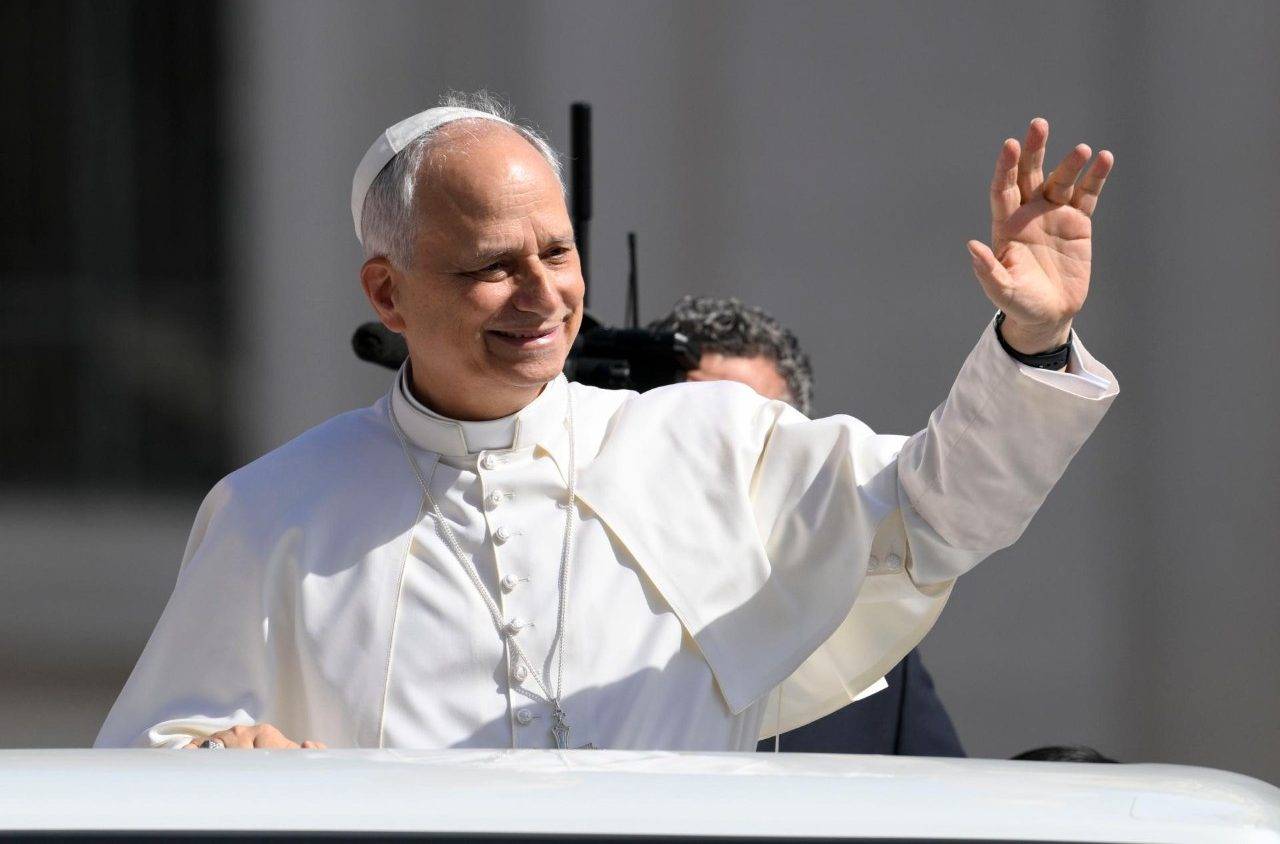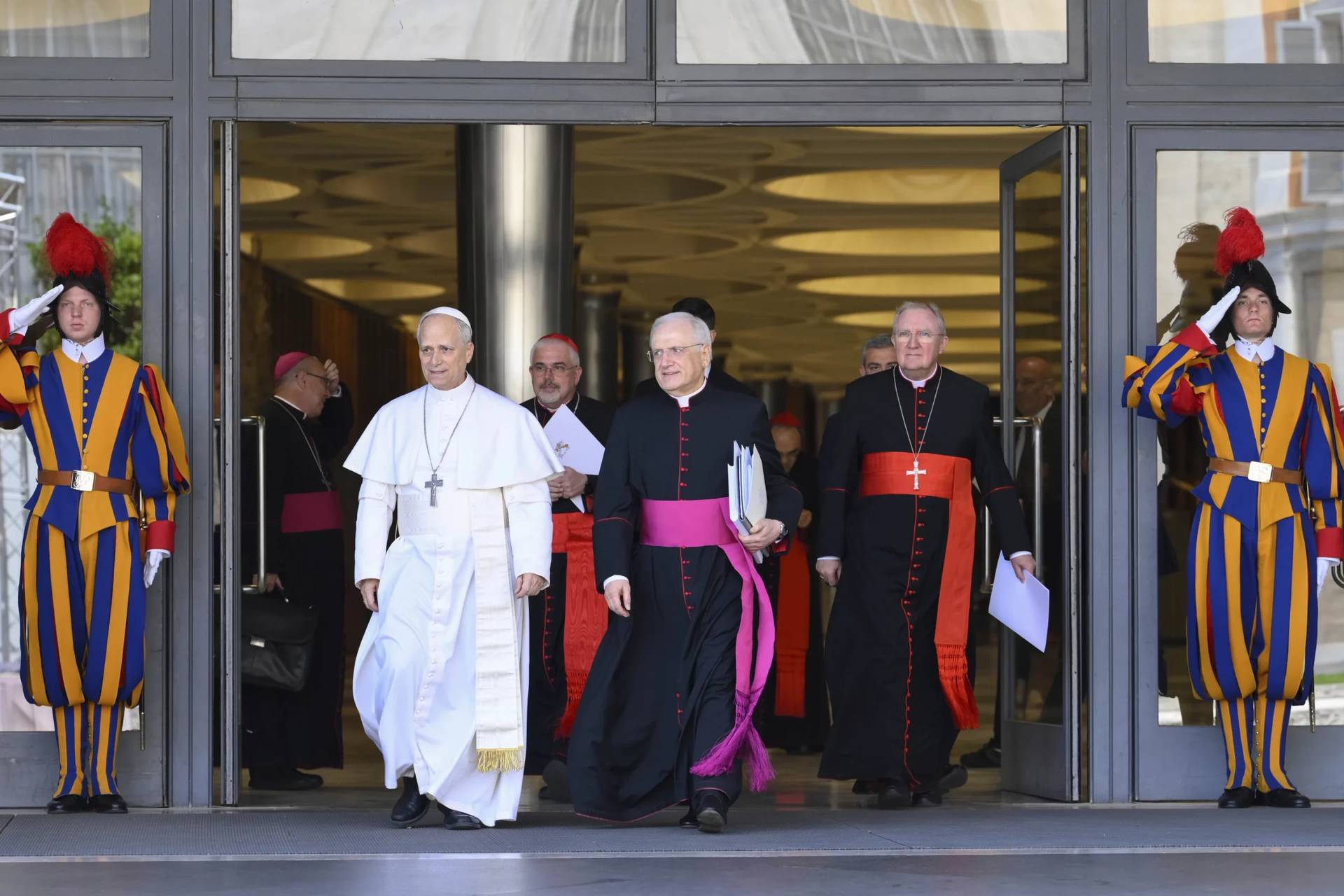ROME – So far, 2016 has seen a flurry of political unrest and a sharp rise in populist sentiment. The Brexit vote shook the political and economic establishment in Europe, the rejection of an historic peace deal in Colombia sent shock waves across Latin America, and the election of Donald Trump proved the U.S. isn’t immune either.
The surprises might not be over yet.
On Sunday Italians will vote on an historic referendum that could unsettle the delicate balance of power in the country and in Europe – and, in this heavily Catholic country, the “Catholic vote” may prove decisive.
Yet, as always in Italy, Catholic sentiment is divided, suggesting that the Church’s influence is likely to be felt on both sides of the debate.
Italy’s prime minister, Matteo Renzi, has proposed a referendum on a constitutional reform that would significantly reduce the power of the Senate, Italy’s second elected chamber. After the fascist dictatorship of Mussolini, the founding fathers of the Republic of Italy went to extreme lengths to avoid power being concentrated in any one man, or group.
They set up a bicameral system where Senate and Parliament share approximately the same responsibilities. While that has prevented any one force from consolidating control, it’s also been a frequent prescription for gridlock, often making it difficult to adopt even common-sense legislation.
If the reform passes, the number of senators would drop from 315 to 100 and their authority would be curtailed, thereby putting an end to the power struggle between Senate and Parliament that has paralyzed Italian politics for years.
The referendum called by the young Florentine prime minister also aims to reinforce the executive power by lessening the responsibility of regional and provincial governments.
With only a few days left, however, things are looking grim for Renzi. According to the most recent polls, only 27 percent of Italians will vote yes, while 33 percent say they are confident in voting against the reform.
Renzi has vowed to step down as prime minister if he loses.
That would likely leave the country in a tug-of-war between the far-right anti-immigration leader of the Northern League, Matteo Salvini, and former comedian-turned-politician Beppe Grillo, leader of the populist Five Star Movement.
There is still hope for Renzi and his Democratic Party. Polls currently suggest that 23 percent of respondents are undecided about how to vote on the referendum. If Renzi could sway Catholic votes to his point of view, it would significantly improve his chances.
Renzi’s war with Family Day on Civil Unions
Renzi’s relationship with the Church has been far from smooth. The prime minister issued a bill in June that opened the door for civil unions in Italy, bypassing parliamentary debate and settling the issue without going through ordinary democratic political processes.
Massimo Gandolfini, the lay coordinator of a “Family Day” rally that opposed the civil unions measure and president of the Defend our Children Committee, has been traveling through Italy to encourage people to vote ‘no’ on the referendum.
“This is not revenge toward the Prime Minister,” Gandolfini said in an interview with the newspaper Tempi. “But we have the impression that he is more interested in his relationship with lobbyists than interpreting the common sentiment of the people.”
Gandolfini insists that his opposition to the reform is based on the fact that the government showed an “authoritarian vocation” by wanting to “ideologically rewrite the anthropology of the Italian family,” and that voting ‘yes’ on the referendum would only give Renzi more power to do as he pleases.
The divided front of Communion and Liberation
Communion and Liberation – an influential lay ecclesiastical movement within the Catholic Church, and one that’s always played a key role in Italian politics – isn’t presenting a united front on the reform.
Many prominent members of the movement have expressed their opposition to Renzi’s plan, fearing an excessive concentration of power in favor of the government. Among them, law professor Luca Antonini and Italy’s former Minister of Defense, Mario Mauro, will be voting ‘no’ on Sunday.
On its website, however, Communion and Liberation takes a more nuanced approach.
The official document on the referendum available on their page admits that “no one can be unaware of the true urgent need of the moment: the need that has advanced in recent years for a more stable and efficient political system that can promote better conditions of life for every citizen and the country.”
While not quite an endorsement, that doesn’t come off as explicit opposition either.
The ‘yes’ of the Catholic unions
ACLI – the Italian Catholic Labor Union – has already made a clear statement in support of a yes vote on the referendum.
“Many might ‘not like’ the Renzi administration – which has placed a focus on reform – but we need stability, responsibility and innovation,” reads the press release of the organization.
ACLI’s backing is important: it has more than 980,000 members belonging to some 8,000 headquarters across the country, where the union has been organizing meetings to encourage members to vote ‘yes’.
“The mobilization has nothing to do with whether we support or not Matteo Renzi’s government,” says Lidia Borzi, president of the ACLI in Rome, in an interview with the newspaper Italia Oggi. “It’s saying ‘yes’ to a reform that is necessary but could be perfected.”
ACLI also has strong leverage with other third-sector organizations – non-governmental associations that deliver public services – such as Federsolidarietà and Cittadinanzattiva, both of which have expressed support for the reform.
Endorsement by Catholic media
Official Catholic news outlets, such as Vatican Radio, largely have expressed solidarity with Renzi. The Jesuit monthly La Civiltà Cattolica has also come out strongly in favor of the reform, describing it as “desirable.”
The magazine is reviewed prior to publication by the Secretariat of State, thereby providing a glimpse of sentiment in the Vatican concerning the upcoming vote.
Jesuit Father Francesco Occhetta – a jurist, theologian and journalist – wrote a detailed analysis of the referendum in May.
“The political reasons that divide us risk taking over the constitutional and cultural reasons that can instead unite us,” Occhetta wrote, adding that the debate should be based on logical rather than political reasons.
He suggested that the reform would fix some issues concerning the election of the president, the role of the Constitutional Court and the responsibilities of the regions. Occhetta points out that if the reform is approved, all the necessary adjustments can be adopted in the future.
Pope Francis and the Italian Bishops’ Conference
Though Occhetta’s article had a greenlight from the Secretariat of the Holy See, it cannot be assumed that everyone in the Vatican shares the same opinion.
Pope Francis has made it very clear that it’s the Italian Bishops Conference (CEI) that handles all relations between the Vatican and Italy, and so far, CEI has been very cautious with its remarks.
“As always, when citizens are called to vote and express their sovereignty we invite them to be informed,” said Bishop Franco Giulio Brambilla, vice president of CEI in Northern Italy. “That way they can have all the necessary elements to form a clear opinion regarding the stake and the lasting consequences.”
Cardinal Angelo Bagnasco of Genoa, president of CEI, who strongly opposed the decree on civil unions, insisted that this be an impartial vote.
“Every citizen,” Bagnasco said after a meeting in Genoa, “must not rely on hearsay, superficial remarks or popular slogans,” but must make an effort to vote “reasonably and sensibly.”
The discretion of both CEI and the pope has angered organizers of the “Family Day” initiative, who felt abandoned during the civil unions debate.
On several occasions, Pope Francis has advocated that the clergy not meddle in politics.
“Laypeople who have an authentic Christian formation do not need a ‘bishop-pilot’ or a ‘monsignor-pilot’ or clerical input to assume their responsibilities at every level from the political to the social, from the economic to the legislative,” the pope told Italian bishops at the General Assembly. “Instead, they need a ‘bishop-pastor’.”
Italy’s referendum: the next Brexit?
With the result of the referendum only a few days away, it is difficult to predict what will be the impact of Catholic votes.
If there is one thing that this year has demonstrated, it’s that one cannot foresee the outcome of an election or vote, not least because the polls have been consistently misleading. The victor in the cases of Brexit and Trump was resentment against the establishment and the status quo.
After December 4, Renzi might realize his dream of becoming the key EU statesman, or Italy might have to prepare for quick elections.
Once more we will wait and see what surprises are in store in this time of political turmoil—and whether 2016 will go out with another populist bang. No matter what happens, this is Italy — which means Catholic opinions and votes will be at the heart of it all.
















